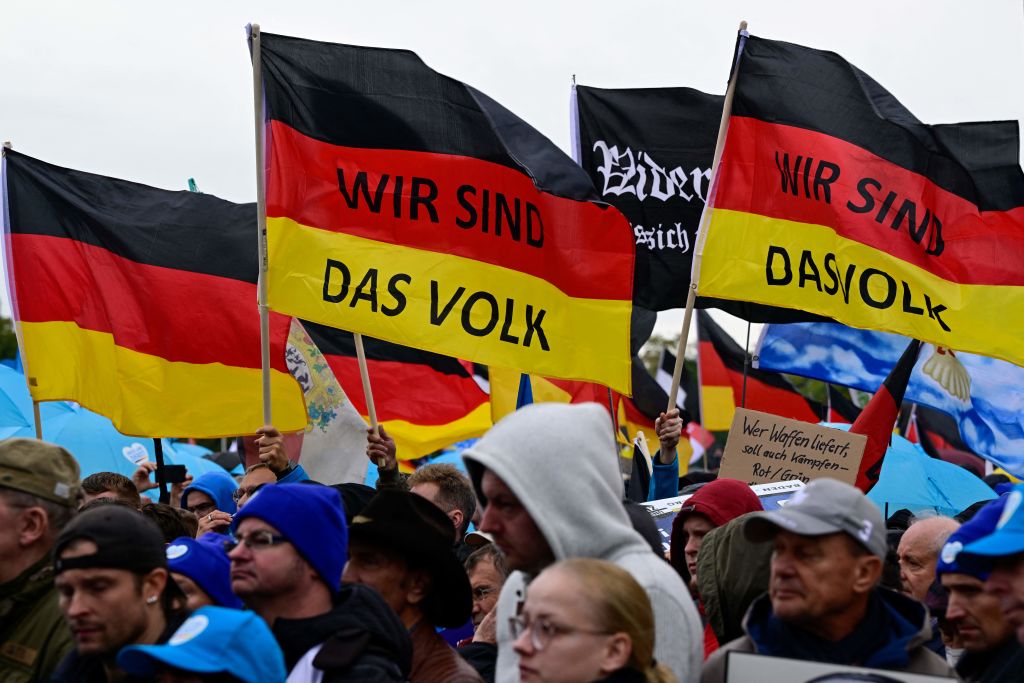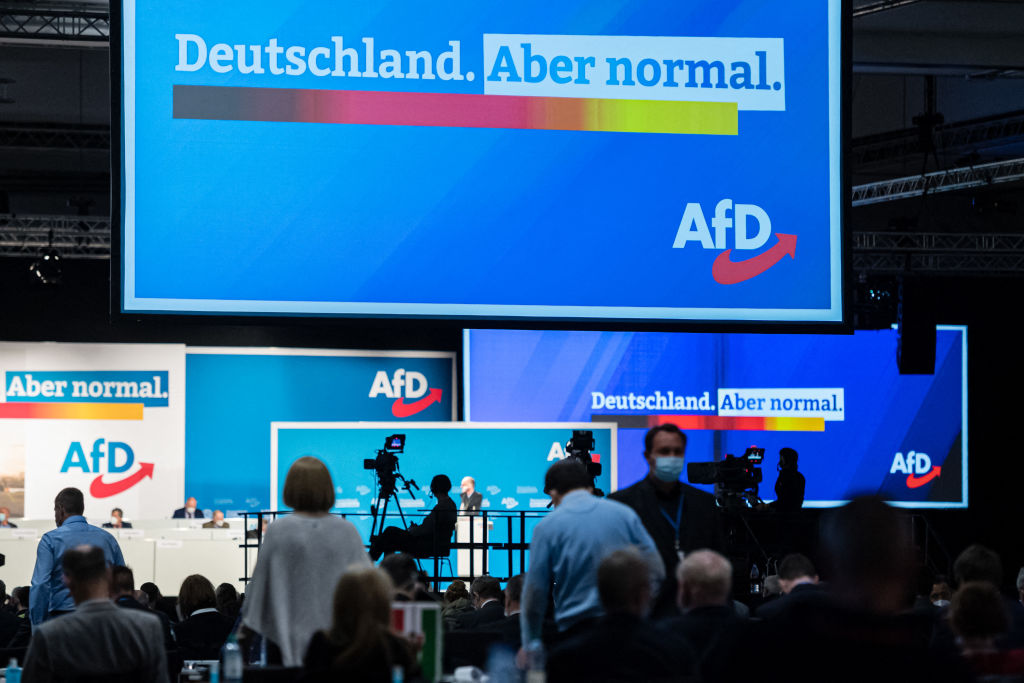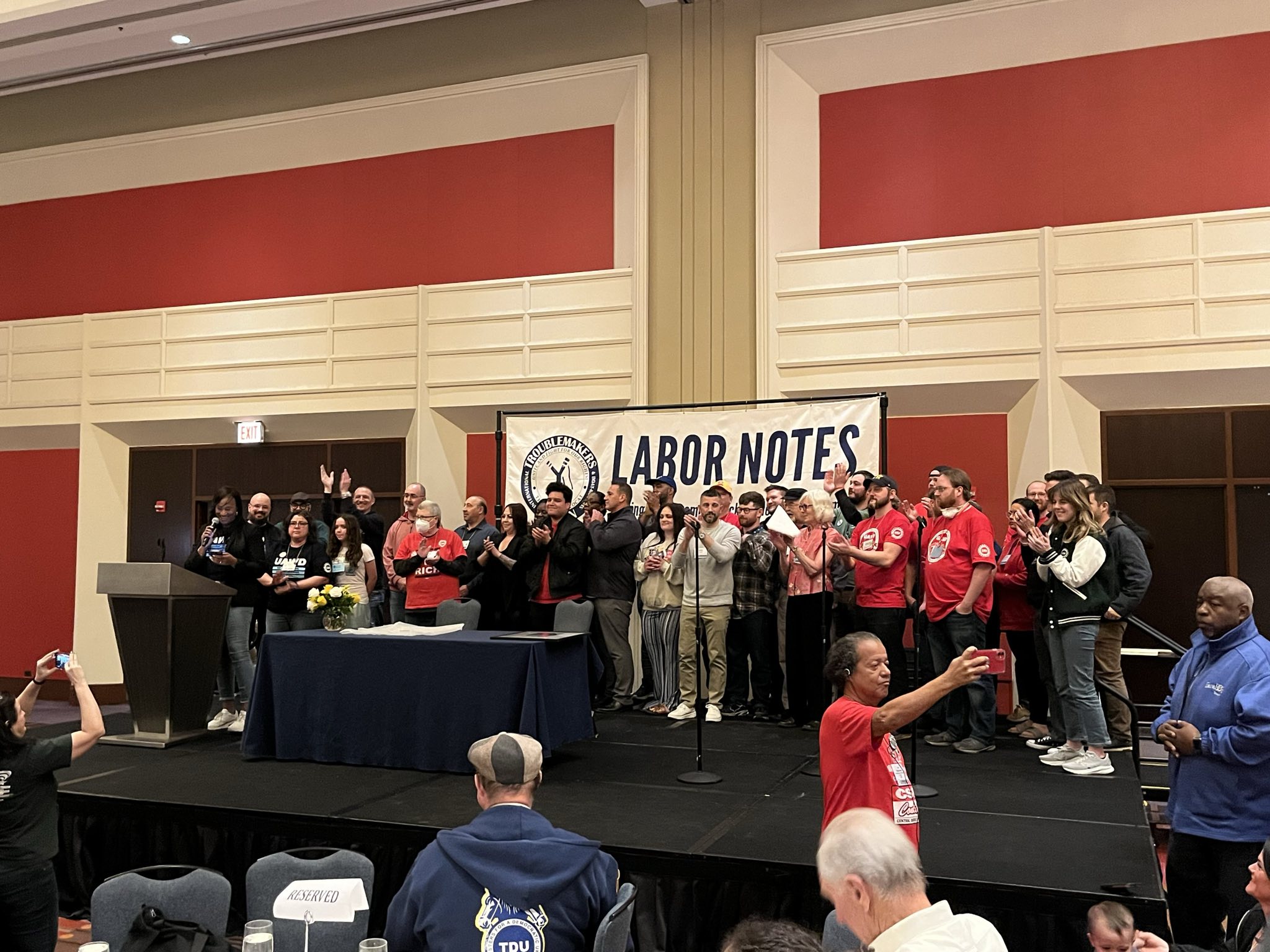Ten years after its founding, the Alternative für Deutschland shows no sign of moderating its politics
The rise of Germany’s leading right-populist party, the Alternative für Deutschland (AfD) or “Alternative for Germany”, is unprecedented in the German political system. The AfD won 10.3 percent in the autumn 2021 elections, securing it seats in the German federal parliament, the Bundestag, for the second time since 2017 (when they won 12.6 percent). In only one short decade, the AfD has managed to embed itself at all parliamentary levels, while even rising to the status of a major party in eastern Germany. Recent surveys suggest that it is the most popular party in the states of Saxony and Thuringia, polling at over 30 percent.
Despite its constant radicalization towards the extreme right, the party has succeeded in establishing itself within the German political system while also securing a central position in the landscape of Germany’s radical Right. Due to the party’s parliamentary status, its Desiderius Erasmus Foundation (DES) can hope to receive generous public funding that, if approved, will likely make the foundation the most important think-tank of the international extreme Right.
How the Extreme Right Modernized
The founding of the AfD in February 2013 marked the end of a peculiarity in the German political landscape that distinguished it from most of its neighbours. Since the 1990s, parties representing a modernized version of the radical Right had gained support and influence in countless other EU countries. But in Germany, the extreme Right was only represented by the (small) National Democratic Party (NPD), and occasionally by the far-right Republikaner and the German People’s Union (DVU) — none of which possessed any real political influence.
For a long time, far-right political parties in Germany were inexorably forced to address their relationship to the Nazi past. This posed an insurmountable obstacle to any enduring success for parties to the right of the conservative establishment. While the radical Right already enjoyed success in the early 1980s in Austria and France with the Freedom Party (FPÖ) and the National Front (FN), and countries such as Italy, Belgium, the Netherlands, and Denmark experienced a rise in right-wing parties in the 1990s, in Germany, by contrast, an apparent calm prevailed until 2013.
That calm was due not to a lack of demand for right-wing extremism, but rather to a dearth of supply, as countless sociological studies since the 1980s have demonstrated. Deutsche Zustände, a long-term study carried out between 2001 and 2011 by Wilhelm Heitmeyer and others, showed that support for a party to the right of the Christian Democrats (CDU) very likely existed: segments of the population broadly agreed with typical ideological elements of the radical Right, even if they were not represented on the political spectrum of the day.
It was precisely this vacuum that the AfD filled in 2013. Its success lies in the fact that in its founding years, it focused on topics and was led by figures who could not be directly tied to the traditional radical Right — even if the traditional radical Right was a part of the AfD from the beginning.
A number of sociological studies in recent years have pointed towards the correlation between neoliberal development, the destabilization of European societies through the shrinkage or elimination of the welfare state, and a form of political authoritarianism that finds its expression in the rise of right-wing populism. In this sense, it is no coincidence that the AfD was established during a period of crisis, in which the demise of neoliberalism’s hegemonic role appeared to be imminent.
The 2008–9 financial crisis, coupled with the destabilization of the Eurozone in the wake of the 2013 economic crisis in Greece, combined to set the scene for the AfD’s emergence and its success. At the time, a number of commentators described its politics as “liberal-nationalist”. Radical free-market economists around the first party chairman, Bernd Lucke, saw the apparent failure of the Merkel government’s euro bailout policies and the Greek crisis as the final push that necessitated the AfD’s founding.
On the back of mounting criticism of both the euro and the European Union as such, Lucke, Joachim Starbatty, and the former president of the German Federation of Industrialists (BDI) Hans-Olaf Henkel managed to galvanize a middle-class clientele that, disappointed by the Free Democratic Party (FDP) and the CDU, was open to a kind of free-market radicalism grounded in nationalist values. Although there was not enough time before the federal elections in autumn 2013 to make it into parliament, the new party barely missed the five-percent threshold, winning 4.7 percent of votes.

From Liberal-Nationalists to Ethnonationalists
Figures like Alexander Gauland and Beatrix von Storch, who played a role in the central leadership circle from the outset, stood for the party’s further radicalization: Gauland for a politics based on ethnonationalism, and von Storch for culture wars centred around anti-feminism, gender roles, demography, and “bashing” the 1968 protest generation. The party’s beginnings were also shaped by the populist far Right, represented in the leadership by figures such as Björn Höcke and André Poggenburg.
The liberal-nationalists surrounding Lucke only dominated the AfD for around two years, after which the party’s new focus on refugees and migration heralded the onset of a more explicit radicalization to the extreme right. The AfD was critical of migration from the outset. While Lucke’s circle advocated for a functional, selective migration policy serving capitalist interests, calls for a rejection of migration of any form on ethnopluralist grounds, as held by the populist Right and propagated by Höcke, became increasingly louder.
This narrative was decisively bolstered by the high levels of migration to Germany and Europe in the summer of 2015. The most nationalist elements among the party’s founding members banded together very quickly around a racist rejection of migrants from what they called “foreign cultures” — and therefore of refugees in any form.
This shift to the right manifested organizationally when Bernd Lucke was voted out in 2015 and replaced with Frauke Petry. Around the same time, in March 2015, the internal current known as “Der Flügel” (The Wing) was founded as an organizational platform for populist right-wingers. This well-organized network immediately gained influence within the party. Both Petry and her successor, Jörg Meuthen, relied on their support at least periodically, paving the way for the populist Right to become the most influential and powerful faction within the party.
That role was enshrined by the AfD’s central figure at the time: Alexander Gauland. As the patron of the Flügel, the longstanding former CDU member kept the populist Right under his protective arm, first in Brandenburg and then at the federal level, where he moved in 2017.
A further radicalization of the AfD to the extreme right then took place in a period in which authoritarian movements linked to racism and conspiracy theories began to gain clout worldwide. In addition, the financial crisis in Europe was followed by a so-called “refugee crisis”, meaning that populist themes such as “Volk” (a nation’s people), “nation”, and “homeland” found further resonance.
Electorally, the groundwork for the AfD’s breakthrough was laid by the party’s state branches in Saxony, Brandenburg, and Thuringia under the leadership of populist right-wing leaders Frauke Petry, Alexander Gauland, and Björn Höcke. With results between 9.7 and 12.2 percent, these states achieved the highest number of votes of all AfD state chapters, running on themes that would later ensure the party further successes: hate and smear campaigns against migrants, as well as the populist bashing of so-called “elites” in politics and culture.
Normalizing Extremism
The large numbers of refugees that arrived in Germany from 2015, together with the spirit of authoritarianism and competition that has prevailed in neoliberalism since the late 1990s, significantly bolstered the populist Right of the AfD. The party’s rising success lay in its ability to transform dissatisfaction with a neoliberalism based on individualization and global competition into support for the racist exclusion of migrants and resentment against supposed or real “global elites”.
This rise, which went hand in hand with the party’s growing radicalization, drew strength from the global upswing in right-wing authoritarianism: from Brexit to the election of Donald Trump, from the rise of Poland’s nationalist party to developments in Hungary, Brazil, India, or Russia — the AfD’s radical Right views itself as part of a worldwide process.
Bolstered by these successes, populist forces within the party pushed for a full radicalization to the right, seeing themselves as, in the words of Björn Höcke, Germany’s “last evolutionary chance” before a civil war initiated by the extreme Right were to break out.
This flirtation with nationalist-revolutionary sentiments was what brought about the party’s expected — and ultimately successful — entry into the Bundestag in 2017. The party’s 12.6 percent of the vote did not lead it nor its factions to moderate their view, nor did the AfD settle into parliamentarianism.
Instead, it paved the way for the normalization of populist heckling, conspiracy mythmaking, and historical revisionism in the chambers of parliament. This downward spiral of radicalization has taken the forms of militant anti-feminism, climate change denial, and — since 2020 — friendly relations with the pandemic deniers known in Germany as “Querdenker”, which have become increasingly shrill in the public sphere.
However, it remained unclear throughout this period how the AfD would translate its positions into real policy. Indeed, that question remains at the core of the party’s internal dispute between its populist-nationalist and middle-class camps. For a time, the latter rallied around co-chair Meuthen, who held office together with Gauland.
While the populist extreme Right of the party, fortified by the 2015 crisis, believes that liberal democracy will soon collapse and is preparing itself for such a so-called “Day X” scenario, the conservative middle-class current dreams of shifting the political axes of the Federal Republic together with a CDU that has itself lurched more sharply to the right in recent years.

The Rightward Spiral
In some senses, the AfD is a victim of its own success, as it has now entered into a downward spiral of radicalization from which there seems to be no escape. At least since its 2022 party congress in Riesa, which led to the downfall of the conservative figurehead and proponent of radical free-market policies, Jörg Meuthen, the party is completely in the hands of the populist right wing represented by Björn Höcke. This means that it is set on a course of fundamental opposition to the system, aspiring to no less than a complete break from the Federal Republic’s Western, liberal parliamentarianism.
Polarizing debates over migration and pandemic measures have spurred the formation of a number of right-wing movements have formed, particularly in eastern Germany, for whom the AfD represents a parliamentary arm within the political establishment. Both Pegida (“Patriotic Europeans against the Islamization of the West”), an anti-Islamic and racist movement, and the Querdenker have adapted forms of authoritarian citizen protest to the street, evidencing potential for a right-wing mass movement. Conspiracy theories, hate towards “elites” in politics and the media, hostility towards anything that is considered “foreign”, and a desire for authoritarian leadership coalesce with the AfD’s political orientation as it mobilizes its forces to encourage such sentiments.
The party has roused high expectations among its supporters by suggesting that radical and fundamental political changes are nigh. According to this vision, inaction would be tantamount to standing by and watching the downfall of Germany, the “Occident”, and the white “race”. AfD functionaries make it clear that those expectations call for uncompromising support. For example, during a speech in the city of Gera on 3 October 2022, Björn Höcke announced that the German people stood before a “historic crossroads” and must decide
“between the ‘Rainbow Empire’, the globalist West … or the traditionalist East. … This ‘Rainbow Empire’, with the USA as its central force and Germany as its most important bridgehead in Europe, is precisely that which is accelerating the destruction of the nation through mass migration, that which has declared war on man and woman. To this force, nothing is sacred anymore: neither good taste, nor hard work, nor our grand historical legacy, nor even our children.”
It was revealed in December 2022 that former AfD member of parliament Birgit Malsack-Winkemann participated in the coup d’état plans of a “Reichsbürger” group uniting conspiracy theorists who deny the Federal Republic’s legitimacy. Malsack-Winkemann’s involvement is just shows where the road leads for unstable characters who are bent on taking the reins of power into their own hands, and in doing so are liable to lose their grip on reality.
Isolation and Affiliation
The more the AfD radicalizes, the more important it becomes that the party be isolated from all other political stakeholders. Although there has so far been no sign of collaboration between the CDU and the AfD at the federal level and in parliament in particular, under its new chair, Friedrich Merz, the CDU has begun to blatantly cherry-pick from the AfD’s traditional issues, attempting to break its exclusive hold on anti-refugee attitudes. The AfD’s ongoing radicalization, which also got it placed under observation for suspected anti-constitutional activity by the Federal Office for the Protection of the Constitution, makes any form of formal cooperation impossible.
At the local and state level, however, things look quite different. Especially in the eastern states, attempts at alignment between the AfD and the CDU can be seen in the form of coordinated tactical voting, as well as collaboration in the implementation of parliamentary commissions, or in overlapping campaigns around themes relating to gender and refugee policy, among others.
Part of the middle-class base that has so far generally held values compatible with the conservative establishment is now drifting towards the milieu of conspiracy theorists which until now was represented exclusively by the AfD. Now, however, CDU functionaries are also fishing in this milieu — either by deploying a political vocabulary that was previously limited to the AfD, or by showing up at protests clearly dominated by a far-right agenda.
The danger of an AfD-sanctioned “radicalized conservatism”, as Austrian political commentator Natascha Strobl calls it, is now apparent across Germany as a whole. Recent events in the US and Brazil to Hungary and Poland show us where this development can lead — and why it is so important to resolutely oppose it.
Gerd Wiegel is a political scientist and advisor on right-wing extremism and anti-fascism for Die Linke in the German parliament. He has worked on the extreme and populist Right in Germany and Europe for years and regularly writes on the topic in left-wing publications.
Translated by Sonja Hornung and Ryan Eyers for Gegensatz Translation Collective.
This article was originally published here.



